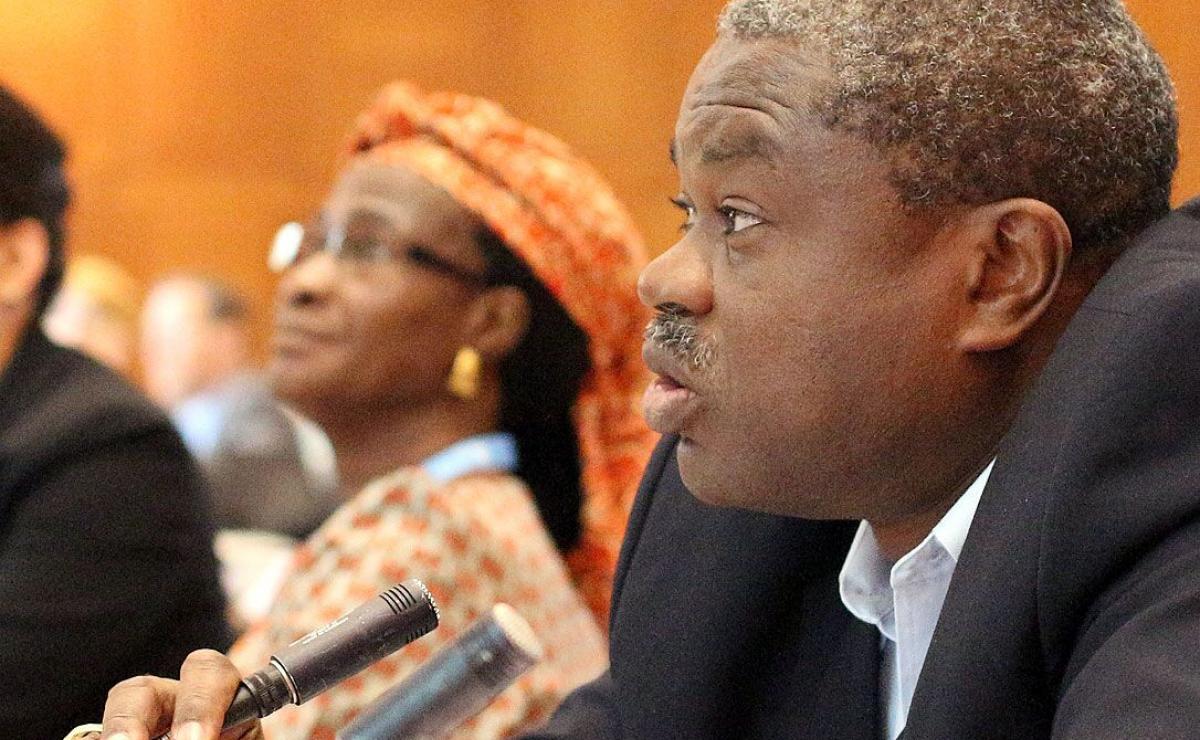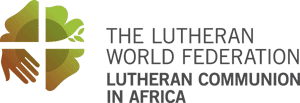A moment to reduce suspicion and strengthen common work

Africa Vice-President Bishop Alex Malasusa says Catholic-Lutheran Commemoration is a moment to experience God’s grace
(LWI) – Tanzanian Bishop Dr Alex G. Malasusa will be at the Joint Catholic-Lutheran Commemoration of the Reformation in Sweden as LWF Vice-President for Africa. He shares some insights from a region in which people of different faiths co-exist and carry out joint diaconal work in areas such as civic education and health services.
Lutheran World Information: What is the importance of the Joint Catholic-Lutheran Commemoration in Lund and Malmö from your perspective?
For us from Africa, we are very happy indeed to witness the Joint Catholic-Lutheran Commemoration as we believe it will bring new impetus to doing more things together as the one Church of Christ. I believe this event will strengthen the unity of believers and will reduce any suspicions or worries of working together. This is of great importance, taking into consideration that both Lutheran and Catholic churches in Africa are fairly young—not more than 200 years.
How are Lutherans and Catholics working together in your region, can you name an example of good cooperation?
Living and working together as faith communities is part of everyday life in Africa. In most countries people of different faiths and denominations co-exist.
In Tanzania for example, we have good collaboration between Lutherans and Catholics within the ecumenical bodies such as the Christian Council of Tanzania (CCT). One of the areas in which we work together is the Christian Social Service Commission (CSSC) of Tanzania. One of the co-initiators of the CSSC was Lutheran educationist, the late Dr Anza Lema, who was Associate General Secretary of the LWF from 1980 until 1992. The Commission also provides health care personnel, medical equipment and medicines to church-owned hospitals.
Another example is through the Christian Forum, a platform for Catholics, CCT and Pentecostals, addressing issues such as civic education and democratic governance.
In addition, during Christian festivities such as Easter and Christmas, we organize ecumenical worship services at which leaders of the Catholic Church and the Protestants under CCT take turns presiding. The government recognizes such cooperation and publicizes the events on the public radio and TV broadcasting stations.
How can we work together in hope for refugees and displaced people in your region?
It is good that this will be a public event which will be witnessed by the ordinary people as well. Lutherans and Catholics are among the largest denominations in Africa with notable social services and collaboration is critical. One example is the possibility for the national Caritas body to work with the Lutheran Development Services or other diaconal institutions of Lutheran churches; this will make a huge impact in the region. In Tanzania for example the contribution of ELCT’s Tanganyika Christian Refugee Services and the local Caritas branch is well recognized by the government and the community at large.
How is the reformation being commemorated in your region?
The Marangu Conference celebrating the 60th anniversary of the African Lutheran communion in Moshi, Tanzania, in May 2015, marked the region’s preparations for the 500 years of the Reformation. In addition, each member church has independent plans for marking the Reformation depending on the national context.
In countries with more than one LWF member church, the Reformation anniversary has been used as a space to bring these churches closer by celebrating together. In Nigeria for example, the youth plan a joint celebration in the city of Abuja. In South Africa, the five LWF member churches are commemorating the Reformation together and using the themes to discuss contextual issues. Theological institutions are encouraged to start study processes studies on the impact of the Reformation in churches in Africa.
Women theologians in Ethiopia, Madagascar, Tanzania and Zimbabwe have taken the opportunity of the Reformation anniversary to commemorate anniversaries of women’s ordination in the African Lutheran church and strategize further.
You will represent the LWF and your region in Lund and Malmö, what are you looking forward to personally during the day?
I expect to see the Church, as the one Body of Christ, thanking the Lord for his grace that has enabled us to reach this positive step, forgetting our differences and pains of the past. I look forward to seeing how going forward, the Church will step up its efforts in preaching the Good News of the Gospel to every living soul.
Bishop Dr. Alex G. Malasusa is the LWF Vice-President for Africa. He heads the Eastern & Coastal Diocese of the Evangelical Lutheran Church in Tanzania, which he served as Presiding Bishop from 2005 until 2015. He is the current chairperson of the Christian Council of Tanzania.
